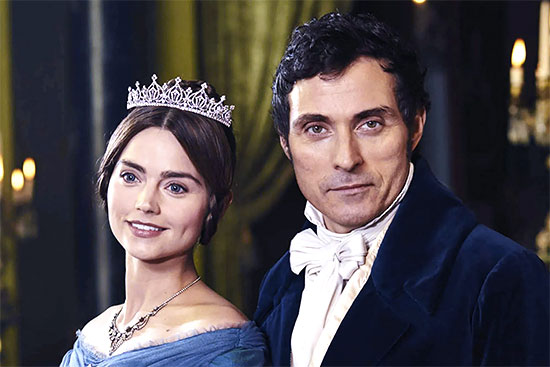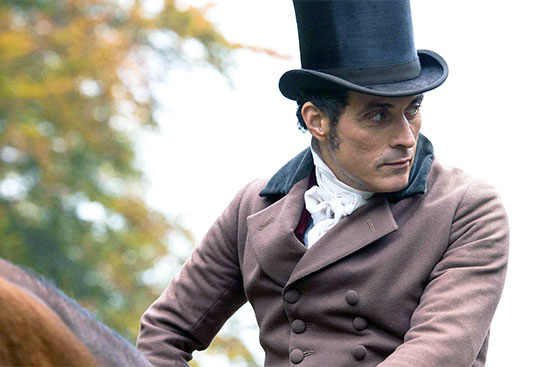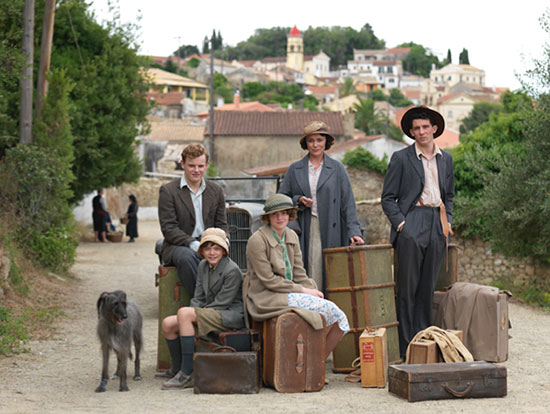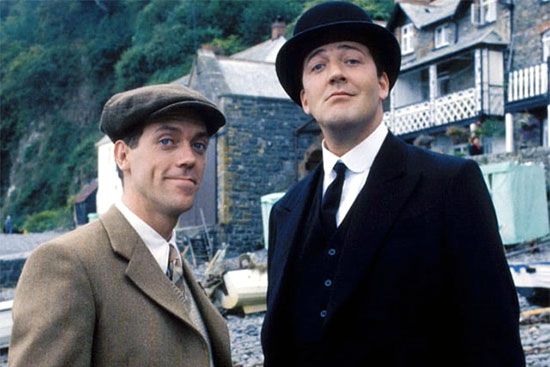Last Updated on June 7, 2023
Characters are the lifeblood of every Masterpiece drama. Sometimes we attach ourselves to them, imagining they are our friends, lovers, or worst enemies. And in the case of exemplary characters, we may even call on their lives for wisdom.

To help keep this site running: Willow and Thatch may receive a commission when you click on any of the links on our site and make a purchase after doing so.
In the sixth in a series of articles for Willow and Thatch about the cultural history of PBS Masterpiece, Nancy West looks at some characters from Masterpiece period dramas who continue to inspire us because of their enduring charm, eccentricity, and manners.
West is author of Masterpiece: America’s 50-Year-Old Love Affair with British Television Drama (Rowman & Littlefield, November 2020), a fascinating book that focuses not just on the long-running show, and its series that have been especially popular, but also why Masterpiece has been significant to Americans in particular.
Looking over Masterpiece’s fifty years of programming, we find a treasury of characters who offer models for living. Take Molly Gibson, the young heroine in “Wives and Daughters” (1999).
Devoted to her friends even when they don’t deserve it, Molly can teach us about the value of constancy, that quality of sticking to something (or someone). The Victorians saw constancy as the foundation for all other virtues, and in our highly changeable, distractible society, we could all use more of it.
Or consider Jean Valjean in “Les Misérables,” whom actor Dominic West described as “the best superhero ever written.” Valjean is strong enough to climb the side of a building if need be. But what makes him a hero is that he tries to be the best man he can when all the odds, including his inner demons, are against him. As West says, “He makes goodness interesting.”
And the list goes on. Ever since 1971, Masterpiece has featured characters who inspire and uplift us.
Sure, we enjoy watching the baddies, but the program’s more admirable characters feed our souls. They are a vital part of Masterpiece’s aspirational pull: walking testaments that fiction, whether on-page or onscreen, can show us how to live with zest, integrity, kindness, and style. These days, they also distinguish Masterpiece from a TV landscape tyrannized by the antihero.
Below are three alluring, enviable traits and the Masterpiece characters, all from period dramas, who embody them.
CHARM: LORD MELBOURNE IN “VICTORIA” (2017–2019)

Charm: a word we use all the time yet barely understand. Even dictionaries stumble in defining it. Merriam-Webster, for example, describes charm as “a trait that fascinates, allures, or delights.” OK, but how? And why?
One way to approach charm is to distinguish it from charisma. Charisma has to do with someone’s presence, his aura. Those who possess charisma (Sherlock Holmes, Poldark, Harry Selfridge) have magnetic personalities, making it easy for them to influence others.
Charm is about presence and connection. Charmers are rapport artists; they have a magical ability to make others feel attended to, even understood. In the presence of a charming person, we’re enthralled by his manner, appearance, and words. But we also feel as if we’re pretty special ourselves.
Who are Masterpiece’s great charmers? One of them is the current host of Masterpiece Mystery!, actor Alan Cumming, whose natural ease is among charm’s requisite properties. He makes us smile the moment we see him.
As for Masterpiece characters: Hercule Poirot has charm, especially when it comes to young women in trouble. So does Francis Urquhart in “House of Cards,” though his charm is all for nasty ends. Ditto, Willoughby in “Sense and Sensibility” (2008). Spiros in “The Durrells in Corfu” (2016–2019) has a kind of homespun charm. Mrs. Wilson’s husband in “Mrs. Wilson” (2019) had so much charm he managed to juggle three unsuspecting wives for twenty years. And let’s not forget Sidney Chambers and Will Davenport in “Grantchester,” whose superior listening skills, not to mention babelicious looks, qualify them both as master charmers.
But Masterpiece’s 100-proof charmer is Lord Melbourne (Rufus Sewell) from “Victoria,” the prime minister who shepherded the young queen through her early reign.
Judging by audience feedback, half of PBS’s viewership was in love with Lord Melbourne, or “Lord M” as the Queen calls him, when “Victoria”’s Season 1 aired in the winter of 2017. And who could blame us? Like many charmers, Lord M is a hottie, with broad shoulders, smoldering eyes, and wavy dark hair.
He also wears his britches very, very well. Tammy Hughes of the Daily Mail agreed, remarking, “Sewell is ready to assume the crown of Sunday night heartthrob currently taken by Poldark’s Aidan Turner.” Assume that crown he did, so much so that when Prince Albert arrived on the scene at the end of episode 3, viewers wished he’d go back to Germany.
It isn’t just his bonny good looks that render Lord M a charmer. Unlike Albert, whose unremitting seriousness makes him a bore, Melbourne has wit. When he first meets Victoria, she immediately informs him that she won’t marry the Prince of Orange because he has a “head the size of a pumpkin,” to which he responds, “I see you have a keen eye for detail, mum.” Melbourne also possesses the charmer’s tact, helping ease Victoria out of her many faux pas by quietly slipping in and fixing a situation, as he does when he comes up behind her and discreetly whispers the names of the various personages she is meeting for the first time.
All charmers have that kind of social acumen. And though he excels at conversation, Lord M is often quiet, suggesting the charmer’s natural sense of self-restraint: his wish is to make others shine, not himself.
“There is something womanly about charm,” observes writer Benjamin Schwartz. Charming men get the opposite sex. They take obvious delight in female company, conveying the impression they’d just as soon spend the afternoon talking with a woman as they would taking her to bed. In fact, what gives the relationship between Victoria and Melbourne such chemistry is precisely the sense that sex would be one of many possibilities for their mutual entertainment. With Albert, contrarily, sex is right there from the start—primal, foursquare, and inevitable.
Charming men also tend to possess an assortment of “feminine” traits, sensitivity among them. Upon meeting Victoria, Melbourne perceives her insecurity while everyone else sees only stubborn independence. More importantly, he recognizes her strengths. When she expresses worry early on in their relationship that she may be too “small” and inexperienced to pull off being a queen, he replies “You have a natural dignity that cannot be learnt,” in his calm, dulcifying voice (another charm essential).
With a prime minister like that around, who’d want Robert Peel (aka Lord Anti-Charm)? When Victoria complains about having Peel as her new PM, Melbourne diplomatically refrains from criticism, only saying, “I’m afraid Lord Peel doesn’t understand the fair sex.” Nope, not even close. But that’s not the point. The line may be about Peel, but we know it’s there to highlight Melbourne’s own appreciation of women.
What other womanly traits make up the male charmer? Grace, elegance, subtlety, and poise, all of which bless Lord M from head to foot. He dances better than any man in the room, carries himself with deportment, and compared to the blunt and bigoted Prince Albert, is Lord Chancellor of the Subtle Remark. All Melbourne’s criticisms of Victoria, for example, come gift wrapped in subtlety, making it impossible for her to take offense at them.
While charm is a form of magic, it’s also a skill. That’s why charm comes with age. It is also one reason why Albert, who’s twenty-something to Melbourne’s forty-something, lacks it. Masters of the social realm, charming people extend courtesy, defuse tension, bestow compliments, inject humor. And because they can’t help themselves, they practice these skills every day, with everyone.
Add Victoria to your WATCHLIST
ECCENTRICITY: “THE DURRELLS IN CORFU” (2016–2019)

In a contest of feel-good TV shows, “The Durrells in Corfu” would beat any contender. Critics call it an “island of charm,” “blissful business,” a “glimpse into a lost idyll,” and as “warm and relaxing as a Corfu sunset.” No wonder: the series takes place on the Greek island of Corfu, all blue sky and popsicle-colored houses. Its dialogue, scripted by Simon Nye, is also acidly funny. But what really gives the show its radiance is the collection of batty, dotty, squiffy characters who star in it. “The Durrells” is a parade of eccentricity: that bygone and very British quality.
Inspired by Gerald Durrell’s memoir My Family and Other Animals, “The Durrells in Corfu” follows widow Louisa Durrell (Keeley Hawes) as she uproots her four children out of dank and grim England in 1935 to build a new life on the “cheap” island of Corfu. Nye first adapted the book in a ninety-minute film, My Family and Other Animals, starring Imelda Staunton and Matthew Goode, for the BBC in 2005. Nye had so much fun that he decided to adapt the story again, this time profiting from the resurgence of long-form drama.
The word eccentric derives from the Greek ekkentros, meaning “out of center.” First gaining currency in the 1790s, eccentricity was quickly assumed to be an English quality—a byproduct of the liberty England gave its citizens. What seems more likely is that eccentricity developed as a harmless means of defying the British obsession with social decorum.
Whatever the reason, the Brits swallowed the identity whole, proudly writing about their assorted weirdnesses in essays, poems, novels, and books, the most famous of which is Edith Sitwell’s English Eccentrics, a veritable museum of fruitloopery published in 1933. What characterizes an eccentric? According to the editors of Eccentropedia, he or she is “nonconforming, creative, idealistic, and obsessed with at least one hobbyhorse.”
Like each of the Durrells, an eccentric is determined to follow a private path irrespective of social expectations. A true eccentric also lacks self-consciousness. As one expert on the subject observes, the quality “has to be natural and unforced—people who try to be eccentric end up just being pillocks.”
To be labeled eccentric rather than crazy used to be a privilege only money could buy; being upper class gave one more license to stray from social norms. “The genius and the aristocrat are frequently regarded as eccentrics,” says Sitwell, “because genius and aristocrat are entirely unafraid of and uninfluenced by the opinions and vagaries of the crowd.” If you were posh enough, in other words, you could get away with anything. Perhaps that’s one reason why My Family and Other Animals has always been so beloved in Britain; it made eccentricity middle class. And indeed, each Durrell is a rara avis.
Oldest son Larry (Josh O’Connor) is a pompous, self-absorbed writer who makes a point of typing in his bathrobe; middle son Leslie (Callum Woodhouse) is a gun-obsessed mama’s boy; and Louisa’s one daughter, Margo (Daisy Waterstone), is, as her mother puts it, “a sex-crazed twit.” Gerry (Milo Parker), a budding zoologist, embodies the most common expression of British eccentricity: an unapologetic preference for animals over people. Even Louisa Durrell (Keeley Hawes) is always ready to try something once. “I’m thinking of learning the harp, or getting a cello between my legs,” she writes to her Aunt Hermione.
It is Louisa, All-Time-Best-TV-Mother, who agrees to move the family to Corfu so her children can explore and experiment and find themselves. The house she presides over—pink!—is as ramshackle as can be, with peeling walls and rickety chairs. No matter: the house, like the island, feels utterly enchanted, there to help the Durrells find experiences that swell the heart and stretch the imagination.
Gerry quickly discovers a companion and mentor, Dr. Theodore Stephanides, just as nutty about wildlife as he; Leslie gets to shoot off firearms to his heart’s content; Margo tries her hand at nursing, fashion consulting, soap sculpting, hairdressing, and “losing her maidenhood”; Louisa becomes the proud owner of a boarding house populated by people far battier than she; and Larry writes a series of “smutty” novels, inspired by the carnal knowledge he has acquired on the island.
Even Louisa’s buttoned-up aunt, Hermione (Barbara Flynn), learns to relax when she comes for a visit, donning kaftans and imbibing vast quantities of ouzo. “I’m like a dog who wonders why she spent so many years barking.”
“Repressive regimes have no truck with eccentrics,” observes William Sitwell. And sure enough, all the Durrells’ madcapping comes to an end once they get news of the Nazi encroachment in Albania. They free Gerry’s menagerie, pack up their pink house, and tearfully say goodbye to their Grecian friends, returning to England at the end of the series for what they hope will be safety. Will the Durrells continue to indulge their eccentricity? The wistful tone of the series’ ending suggests not. But they had four glorious years of it, as did we.
Add The Durrells in Corfu to your WATCHLIST
MANNERS: JEEVES IN “JEEVES AND WOOSTER” (1990–1993)

Manners, says writer Mark Caldwell, “are what is left when serious issues of human relations are removed from consideration; yet without manners serious human relations are impossible.” Caldwell is right. Manners tend to strike Americans as trivial, old-fashioned, or even oppressive, yet as he suggests, they’re vital to social harmony. Based on virtues like kindness, manners are what allow us to get through our days smoothly and pleasantly. Their purpose is not to stifle individual freedom, as many Americans assume, but to show respect and consideration for the needs, ideas, and opinions of others.
Manners, in short, are the outward expression of moral character. And there is no Masterpiece figure who can teach us more about the value of good manners than Jeeves, the slick-haired and shiny-shoed valet from Masterpiece’s “Jeeves and Wooster.”
The series is based on the canon of thirty-five short stories and eleven novels by P. G. Wodehouse, published between 1916 and 1974. Wooster is a blithe and hapless gent with a knack for “landing in the soup” (which typically means that this wealthy young bachelor feels he’s being dragooned into marriage); Jeeves is the wily and resourceful valet who always manages to rescue him.
The stories are all sunlit silliness and innocence, there for us to read when we’re suffering from boredom, a melancholy mindset, or drabness of soul. Reading even a page from the Jeeves and Wooster series makes us feel instantly better, charmed by the loopy characters, ridiculous plots, and jaunty inventiveness of language. “Mr. Wodehouse’s idyllic world can never stale,” said Evelyn Waugh in 1961. “He has made a world for us to live in and delight in.”
And Jeeves, as more than one critic has remarked, is perfect. No, really: he’s perfect. Everything he says or does is utterly right, and no small part of this is his impeccable manners. It’s a clever strategy: to make the man of lower social rank much more the gent than his employer, or for that matter, any of the bluebloods that populate Wodehouse’s world. The potentially poisonous thing about manners is their entanglement with social class; manners often abet the cause of snobbery, excluding or ostracizing those who don’t have the requisite knowledge of etiquette.
Wodehouse completely upends this idea, making the servant a model of behavior for those whose upper-class status have veered them toward discourtesy or carelessness.
What makes Jeeves (played by Stephen Fry) such a mannerly model? To begin, he is consistently polite and cheerful, traits agreeable in themselves and useful in sustaining social harmony. He is also humble. Though far smarter than Bertie (Hugh Laurie), or any of Bertie’s nitwit friends and relatives, Jeeves never flaunts his intelligence. He pursues erudition for its own sweet sake and uses his uncanny resourcefulness to help others.
Like Hudson from Upstairs, Downstairs or Carson from “Downton Abbey,” Jeeves also rocks etiquette, instructing Wooster on what to wear, what to say, and generally on how to behave. Jeeves’s ideas about etiquette are charmingly old-fashioned, and one of the running jokes in the series is his decided disapproval of Wooster’s Jazz-Age tastes and sensibilities, deeming them vulgar.
Jeeves is also a master of tact, defined as an adroitness and sensitivity in dealing with others. Tact requires paying attention. One of its accomplishments is to find the pleasant or encouraging side of the truth. Unlike Bertie’s Aunt Agatha, who believes in bald honesty and delivers her criticisms of Bertie with the force of a drilling machine, Jeeves speaks diplomatically, criticizing Wooster in ways that never offend. He also excels at covering Wooster’s mistakes without his master being quite sure it was done intentionally.
Jeeves does much good within his world, and like all those possessed of excellent manners, he does so by maneuvering delicately and cautiously in the right direction, without provoking anger. His behavior recalls Caldwell’s comment that manners, while not having the power to “arbitrate fateful issues of right or wrong,” can create good in their own “incremental, improvisational, indirect, and opportunistic way.”
Add Jeeves and Wooster to your WATCHLIST
For a list of the period dramas that have aired on Masterpiece, season by season, see this page.
Nancy West is author of Masterpiece: America’s 50-Year-Old Love Affair with British Television Drama (Rowman & Littlefield, 2020), in which she provides a fascinating history of the acclaimed program.
West combines excerpts from original interviews, thoughtful commentary, and lush photography to deliver a deep exploration of the television drama. Vibrant stories and anecdotes about Masterpiece’s most colorful shows are peppered throughout, such as why Benedict Cumberbatch hates “Downton Abbey” and how screenwriter Daisy Goodwin created a teenage portrait of Queen Victoria after fighting with her daughter about homework.
Featuring an array of color photos from Masterpiece’s best-loved dramas, this book offers a penetrating look into the program’s influence on television, publishing, fashion, and its millions of fans.
West is professor of English at the University of Missouri and the author of Kodak and the Lens of Nostalgia (2000) and Tabloid, Inc.: Crimes, News, Narratives (2010). Her books have led to appearances on PBS’s American Experience and the BBC’s Genius of Photography as well as keynote speeches at the National Gallery of Art in Washington, DC, the London School of De- sign, and the Amon Carter Museum. She is a regular contributor to Written by Magazine, the Atlantic, the Chronicle of Higher Education, and the Los Angeles Review of Books. She is currently writing a memoir, set in the 1970s, about movies and childhood trauma.
If you enjoyed this post, wander over to The Period Films List. You’ll also like the Tastiest Male Leads in British Period Dramas.

